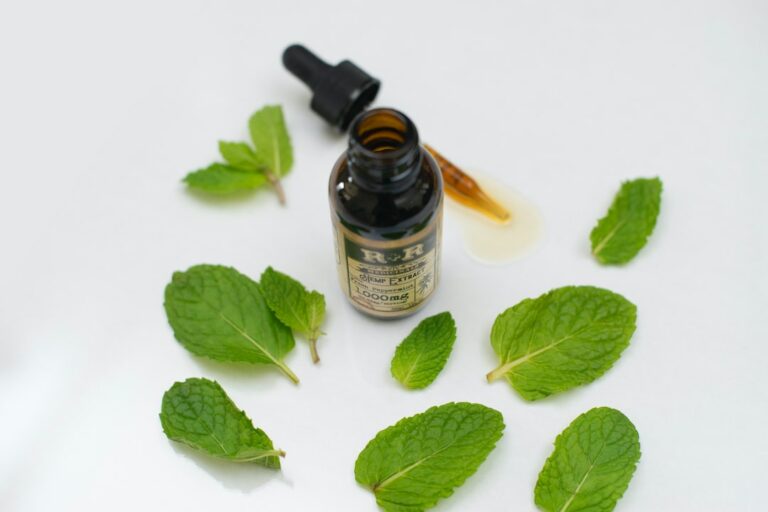Introduction
What is Vitamin C?
Vitamin C, also known as ascorbic acid, is a water-soluble vitamin that plays a crucial role in various bodily functions. It is essential for the growth, development, and repair of tissues in the body. Vitamin C is a powerful antioxidant that helps protect cells from damage caused by harmful free radicals. It is also involved in the production of collagen, a protein that is important for the health of the skin, bones, and blood vessels. Additionally, vitamin C enhances the absorption of iron from plant-based foods and supports the immune system. It is found in a variety of fruits and vegetables, such as oranges, strawberries, kiwi, bell peppers, and broccoli.
What is Vitamin B12?
Vitamin B12, also known as cobalamin, is an essential nutrient that plays a crucial role in the production of red blood cells and the maintenance of a healthy nervous system. It is a water-soluble vitamin that is naturally found in animal products such as meat, fish, eggs, and dairy. Vitamin B12 is necessary for the proper functioning of the brain and the formation of DNA. It is also involved in the metabolism of carbohydrates, fats, and proteins. Natural detox methods, such as consuming a diet rich in fruits and vegetables, can help support the body’s ability to absorb and utilize vitamin B12. However, it is important to note that vitamin C does not destroy vitamin B12. In fact, vitamin C can actually enhance the absorption of vitamin B12 in the body. Therefore, it is important to ensure an adequate intake of both vitamin C and vitamin B12 for optimal health.
Importance of Vitamin C and B12
Vitamin C and B12 play crucial roles in maintaining overall health. Vitamin C, also known as ascorbic acid, is a powerful antioxidant that helps protect cells from damage caused by free radicals. It is essential for the growth, development, and repair of body tissues. B12, on the other hand, is a water-soluble vitamin that is necessary for the formation of red blood cells and the proper functioning of the nervous system. It also helps convert food into energy. Both vitamins are important for immune function and can help support a healthy immune system. Additionally, vitamin C and B12 have been studied for their potential role in natural remedies for mercury detox. While more research is needed, some studies suggest that these vitamins may help support the body’s natural detoxification processes and reduce the harmful effects of mercury exposure. Therefore, it is important to ensure an adequate intake of vitamin C and B12 through a balanced diet or supplementation.
Interaction between Vitamin C and B12

Does Vitamin C destroy B12?
Vitamin C is a crucial nutrient that plays a significant role in various bodily functions. However, there is a common misconception that vitamin C can destroy B12. This article aims to clarify the relationship between vitamin C and B12 and address the concerns surrounding this topic. It is important to note that there is no scientific evidence to support the claim that vitamin C destroys B12. In fact, both nutrients are essential for overall health and well-being. While vitamin C is known for its antioxidant properties and its ability to boost the immune system, B12 is essential for proper red blood cell formation and neurological function. It is important to maintain adequate levels of both vitamin C and B12 to prevent any potential deficiencies that may lead to health issues such as hormonal imbalance. Therefore, it is recommended to consume a balanced diet that includes food sources rich in both vitamin C and B12, or consider supplementation if necessary.
How does Vitamin C affect B12 absorption?
Vitamin C plays a crucial role in the body’s overall health and functioning. However, when it comes to B12 absorption, vitamin C has been found to have a negative impact. Research suggests that high levels of vitamin C can interfere with the absorption of B12, leading to potential deficiencies. This is because vitamin C can convert B12 into a form that is not readily absorbed by the body. Therefore, it is important to be mindful of the amount of vitamin C consumed in order to maintain optimal B12 levels. It is recommended to consult with a healthcare professional to determine the appropriate intake of both vitamin C and B12 for your specific needs.
Can Vitamin C supplementation lead to B12 deficiency?
Vitamin C is an essential nutrient that plays a crucial role in various bodily functions. It is well-known for its immune-boosting properties and its ability to promote collagen production. However, there is a common misconception that excessive vitamin C supplementation can lead to B12 deficiency. While it is true that vitamin C can interfere with the absorption of B12 in high doses, this only occurs in individuals with pre-existing B12 deficiency or those who are at risk of deficiency. It is important to note that vitamin C itself does not destroy B12, but rather hinders its absorption in certain circumstances. Therefore, it is recommended to maintain a balanced intake of both vitamin C and B12 to ensure optimal health and prevent any potential deficiencies.
Sources of Vitamin C and B12

Foods rich in Vitamin C
Vitamin C is an essential nutrient that plays a crucial role in maintaining overall health. It is well-known for its immune-boosting properties and its ability to fight off common colds and flu. However, there is a common misconception that vitamin C can destroy vitamin B12. This claim is not supported by scientific evidence. In fact, vitamin C and vitamin B12 are both important for the body and can work together to support various bodily functions. It is important to consume foods rich in vitamin C to ensure optimal health and wellbeing.
Foods rich in Vitamin B12
Vitamin B12 is an essential nutrient that plays a crucial role in maintaining a healthy nervous system and producing red blood cells. It is primarily found in animal-based foods, making it challenging for vegetarians and vegans to meet their daily requirements. However, there are several plant-based foods that are rich in Vitamin B12, such as fortified cereals, nutritional yeast, and plant-based milk alternatives. These options can provide a sufficient amount of Vitamin B12 for individuals following a plant-based diet. It is important to note that Vitamin C does not destroy Vitamin B12, contrary to popular belief. Both vitamins can be consumed together without any negative effects on absorption or utilization. Therefore, it is possible to maintain adequate levels of both Vitamin C and Vitamin B12 through a balanced diet.
Supplements for Vitamin C and B12
Vitamin C and B12 are both essential nutrients that play important roles in the body. While vitamin C is known for its immune-boosting properties and its ability to protect against oxidative stress, B12 is crucial for proper nerve function and the production of red blood cells. However, there is a common misconception that vitamin C can destroy B12. This is not true. In fact, vitamin C can actually enhance the absorption of B12, making it even more beneficial for overall health. So, if you’re considering taking supplements for vitamin C and B12, rest assured that they can work together synergistically to support your well-being.
Recommended Daily Intake

Recommended daily intake of Vitamin C
The recommended daily intake of Vitamin C is essential for maintaining optimal health. Vitamin C, also known as ascorbic acid, plays a crucial role in supporting the immune system, promoting collagen production, and aiding in the absorption of iron. It is recommended that adults consume 75-90 milligrams of Vitamin C per day, while children require slightly less. However, it is important to note that excessive intake of Vitamin C can lead to adverse effects such as gastrointestinal disturbances. Therefore, it is always best to consult with a healthcare professional to determine the appropriate dosage for your individual needs.
Recommended daily intake of Vitamin B12
Vitamin B12 is an essential nutrient that plays a crucial role in maintaining overall health. It is responsible for the production of red blood cells, DNA synthesis, and proper functioning of the nervous system. The recommended daily intake of Vitamin B12 varies depending on age, sex, and life stage. For adults, the recommended intake is 2.4 micrograms per day. However, certain individuals, such as pregnant or breastfeeding women, may require higher amounts. It is important to include Vitamin B12-rich foods in your diet to meet the recommended daily intake. One of the healthiest fruits that provide a good source of Vitamin B12 is kiwi. Kiwi is not only delicious but also packed with essential nutrients. Incorporating kiwi into your diet can help ensure you meet your daily Vitamin B12 requirements.
Combining Vitamin C and B12 for optimal health
Vitamin C and B12 are important nutrients that play crucial roles in maintaining optimal health. Combining these two vitamins can have a positive impact on overall well-being. Vitamin C, also known as ascorbic acid, is a powerful antioxidant that helps boost the immune system and promotes collagen production. On the other hand, B12, also known as cobalamin, is essential for nerve function and red blood cell formation. When taken together, vitamin C and B12 can enhance each other’s absorption and effectiveness in the body, leading to improved energy levels and a strengthened immune system. This combination is particularly beneficial for individuals seeking menopause relief, as both vitamins have been shown to alleviate symptoms such as fatigue and mood swings. By incorporating vitamin C and B12 into your daily routine, you can support your overall health and well-being during this transitional phase of life.
Health Benefits of Vitamin C and B12

Vitamin C benefits for the immune system
Vitamin C is an essential nutrient that plays a crucial role in supporting the immune system. It is known for its antioxidant properties, which help protect cells from damage caused by free radicals. Vitamin C also promotes the production of collagen, a protein that is important for the health of the skin, bones, and connective tissues. Additionally, vitamin C enhances the absorption of iron from plant-based sources, making it an important nutrient for individuals following a vegetarian or vegan diet. Incorporating natural medicine into your daily routine can provide numerous benefits for your overall well-being.
Vitamin B12 benefits for energy production
Vitamin B12 is an essential nutrient that plays a crucial role in energy production within the body. It is involved in the metabolism of carbohydrates, proteins, and fats, helping to convert them into usable energy. Adequate levels of vitamin B12 are necessary for maintaining optimal energy levels and preventing fatigue. This vitamin also supports the functioning of the nervous system and promotes the production of red blood cells, which are responsible for carrying oxygen to the body’s tissues. Alternative medicine practitioners often recommend vitamin B12 supplementation to improve energy levels and overall well-being.
Other health benefits of Vitamin C and B12
Vitamin C and B12 not only play a crucial role in maintaining overall health, but they also offer a range of other health benefits. One of the key benefits of Vitamin C is its ability to aid in mercury removal from the body. Mercury, a toxic heavy metal, can accumulate in the body over time and lead to various health issues. Vitamin C acts as a powerful antioxidant and helps to neutralize the harmful effects of mercury. By binding to mercury molecules, Vitamin C assists in their excretion from the body. This detoxification process can help reduce the risk of mercury-related health problems. In addition, Vitamin B12 is essential for proper nerve function and the production of red blood cells. It also plays a role in DNA synthesis and supports brain health. Together, Vitamin C and B12 provide a comprehensive approach to maintaining overall health and well-being.
FAQ (Frequently Asked Questions)

Can you take Vitamin C and B12 together?
Vitamin C and B12 are both essential nutrients for maintaining holistic health. While they have different functions in the body, they can be taken together without any negative interactions. In fact, vitamin C can enhance the absorption of B12, making it even more beneficial. Both of these nutrients play important roles in supporting the immune system, promoting energy production, and maintaining healthy skin. It is important to ensure an adequate intake of both vitamin C and B12 to support overall well-being.
What are the symptoms of Vitamin C deficiency?
Vitamin C deficiency can lead to a variety of symptoms. Some of the most common symptoms include fatigue, weakness, and a weakened immune system. Other symptoms may include slow wound healing, dry and splitting hair, and swollen and bleeding gums. In severe cases, vitamin C deficiency can result in a condition called scurvy, which is characterized by fatigue, joint pain, and easy bruising. It is important to note that vitamin C deficiency is rare in developed countries, as it can be easily obtained through a balanced diet that includes fruits and vegetables.
Can Vitamin C and B12 be harmful in high doses?
Vitamin C and B12 are essential nutrients that play important roles in the body. While both are necessary for overall health, it is important to be mindful of their intake in high doses. In general, vitamin C is considered safe even in high amounts as it is a water-soluble vitamin that is easily excreted by the body. However, excessive intake of vitamin C supplements may cause gastrointestinal discomfort such as diarrhea or stomach cramps. On the other hand, high doses of vitamin B12 are generally well-tolerated and do not pose significant health risks. However, it is important to note that vitamin B12 is primarily found in animal-based foods, making it essential for individuals following a vegan or vegetarian diet to ensure adequate intake through fortified foods or supplements. It is always recommended to consult with a healthcare professional before starting any new supplements or drastically increasing the intake of vitamin C or B12.








































